CASA Advocate Alison Lawrence: Showing Up to Make a Difference
Over the course of her 12-year service at Court Appointed Special Advocates (CASA) of New Hampshire, Alison Lawrence has gained a bit of a reputation. She’s even earned herself a nickname: The Finisher. And while this all sounds quite ominous, it’s actually much the opposite.
One of the first things you’d notice when meeting Alison is that, judging by her accent, she’s not from “around here.” In 2001, Alison and her family moved from England to New England when her husband accepted a job in New Hampshire. Since she came to the states on his work visa, Alison wasn’t allowed to obtain paid employment herself. She had been an elementary school teacher in London, so she began volunteering at her children’s school. She continued to look for volunteer opportunities and when she discovered CASA, Alison felt like it was a perfect fit.
Alison has worked on a wide array of cases. She has seen children adopted and she’s seen families reunified. She’s had cases where she and DCYF were in agreement, and others where the facts led her to a different conclusion.
In one case, Alison believed that reunification was safe and possible when DCYF felt otherwise. Ultimately the judge agreed with Alison and the family was reunified. “That was hard,” Alison says. “It felt really difficult to be in opposition to DCYF, but it was hugely satisfying to think how hard we worked to get that little girl to go home, which was not going to happen otherwise. It was really wonderful for the judge to listen and to make you feel like your thoughts matter.”
The value judges place on the CASA’s insight is one constant Alison has experienced throughout her cases. “I’ve had the judge lean across the bench to me and say, ‘So come on Alison, what do you think?’ And that’s because very often you are the one who sees that family the most. You do have a closer point of contact.” By working on only one or two cases at a time, the CASA is able to get to know the child themselves, the parents, and the various issues, needs, and family dynamics at play more acutely than perhaps anyone else working on that case. They pick up on things others might miss and they see the continuum of whether parents are making the necessary progress.
Alison says adoptions are “absolutely adorable and the most beautiful thing you’ll ever get see.” As the advocate for infant twins who were taken into care immediately from the hospital, Alison was there to see their adoption.
Sadly, Alison reports she’s witnessed a rise in the number of cases involving infants due to the opioid crises. More babies are being born substance-exposed to parents who are unable to care for them due in large part to their substance misuse. “People often say to me, ‘Oh, I don’t know how you could do that work, it would break my heart, it’s so sad.’ But I think it’s the complete opposite! It’s not sad at all. We all know these terrible things go on, but let’s make the best of what is happening. Let’s try to improve it! I saw two children get adopted into a family where they mean the world. Can you give me a better example of something with a more phenomenal outcome?”
Teenagers, on the other hand, pose their own set of hurdles. “My very first case was probably the most challenging. It was an older youth who had so many opinions on what he thought was best. When you’re in a bad situation you lash out at everybody. But as crazy as it is, I feel like sometimes I have the worst relationship with a teenager, yet they contact me when they need someone. You realize that they don’t see me as the enemy, they actually see me as being quite supportive of them.”
It’s through some of these cases and others like them that Alison earned her CASA moniker, The Finisher. As Alison attests, “if you call me and you’re in a pinch, I’ll say yes.” Once CASA staff discovered this, along with her ability to always stay neutral and to see the big picture, Alison’s phone began ringing with requests for her to step in when other CASAs had to leave a case. Alison would see these cases through to the end, ensuring each child continued to receive the attention and support that a CASA provides.
To those wondering how a CASA even begins a case, Alison advises, “Just be you. Treat this as if you weren’t doing it in a legal way, and you’re actually just a friend of the family. If you had just met somebody, what would you say to them? Just remember you’re talking to another human, and all the other stuff will come in time. It absolutely is a whole new world, and you’re learning on your feet. You’ll get there, and you’ll always have the support of people around you within the organization.”
One could spend a lifetime doing this work and still encounter new things. Having worked with 17 children on 13 different cases, Alison hasn’t “seen it all,” but her experience is considerable. So, it’s significant that she emphatically (and frequently) encourages others to consider becoming a CASA. “When people say they’ve thought about doing this, but it would be too sad, it would break their heart, I ask them, ‘is it better for you to deal with that, or for it not to be dealt with at all?’ I tell them they will be fine, and that they will have cases that are so heartwarming it will balance it all out. Yes, these are difficult situations, but we’re always aiming to get the best outcome.”
For some lucky and deserving children, The Finisher was on the job to help them reach their best outcome. For others, it could be you.
If you would like to become a CASA volunteer, consider attending an upcoming virtual information session to learn more, or submit an application today.




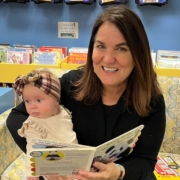

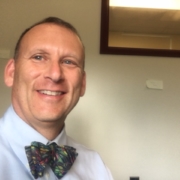

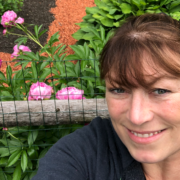

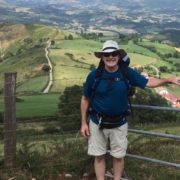

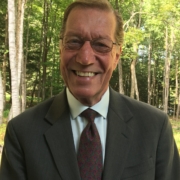

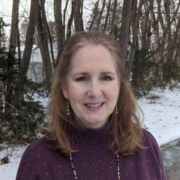
 Volunteering with children who have experienced abuse, neglect, and trauma, Maureen Rowley, a Court Appointed Special Advocate (CASA) for 22 years, has seen sadness and heartache, but has also seen joy. She’s cheered on parents who battle back and arise victorious from the clutches of drug misuse in order to gain back custody of a beloved child. And she’s seen the miraculous transformation that can take place when a traumatized child is matched with the perfect adoptive family.
Volunteering with children who have experienced abuse, neglect, and trauma, Maureen Rowley, a Court Appointed Special Advocate (CASA) for 22 years, has seen sadness and heartache, but has also seen joy. She’s cheered on parents who battle back and arise victorious from the clutches of drug misuse in order to gain back custody of a beloved child. And she’s seen the miraculous transformation that can take place when a traumatized child is matched with the perfect adoptive family.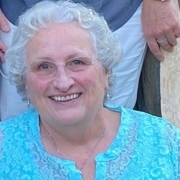
 Kathy Johnson has built a life on caring for others. During her career in nursing, she taught nursing students how to care for children with special needs. At home, she raised her four children, and is now a grandmother of 10 (not one to sit idle, Kathy crocheted a blanket for each grandchild last winter during the pandemic lockdown). So, it’s no surprise that after retiring in 2016, Kathy took on the role of CASA volunteer advocate. She had a coworker who was involved with CASA, and Kathy thought it sounded like the type of thing she would enjoy, and a good opportunity to give back to her community.
Kathy Johnson has built a life on caring for others. During her career in nursing, she taught nursing students how to care for children with special needs. At home, she raised her four children, and is now a grandmother of 10 (not one to sit idle, Kathy crocheted a blanket for each grandchild last winter during the pandemic lockdown). So, it’s no surprise that after retiring in 2016, Kathy took on the role of CASA volunteer advocate. She had a coworker who was involved with CASA, and Kathy thought it sounded like the type of thing she would enjoy, and a good opportunity to give back to her community.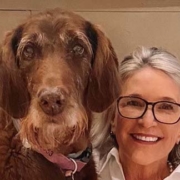
 Patty Tollner has spent 12 years serving CASA of New Hampshire in multiple roles, from board member to volunteer advocate—some of that time with a special friend, her trained therapy dog Raisin, by her side. Like many people, Patty had heard about CASA through various channels over a number of years before the time was right for her to get involved.
Patty Tollner has spent 12 years serving CASA of New Hampshire in multiple roles, from board member to volunteer advocate—some of that time with a special friend, her trained therapy dog Raisin, by her side. Like many people, Patty had heard about CASA through various channels over a number of years before the time was right for her to get involved.